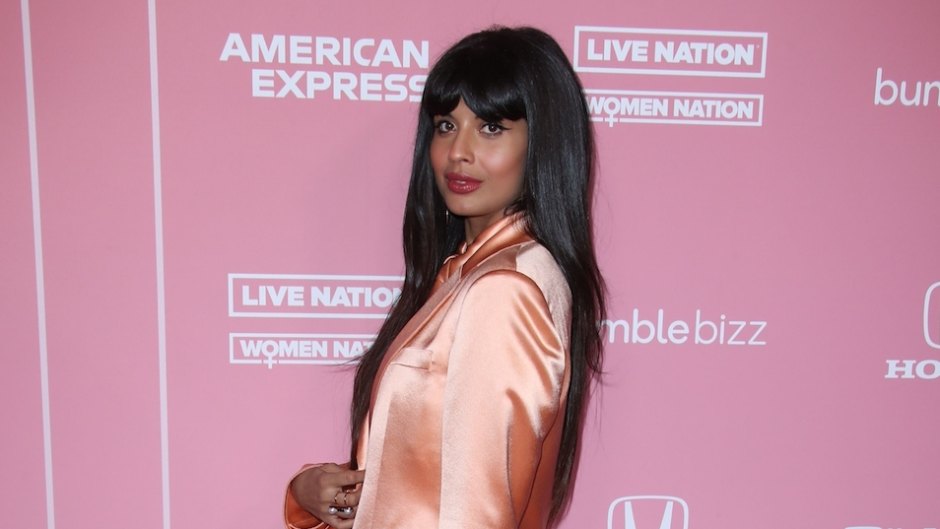
Matt Baron/Shutterstock
Jameela Jamil Addresses Sexuality Following ‘Legendary’ Controversy: This Is ‘Not How I Wanted It to Come Out’
She’s speaking her truth. The Good Place star Jameela Jamil released a lengthy statement about her sexuality in the wake of backlash she faced over being featured on HBO Max’s new ballroom inspired show, Legendary. The actress explained why she “never came out as queer” until now, while addressing the “brutal” bullying that she has dealt with on social media.
“I added a rainbow to my name when I felt ready a few years ago, as it’s not easy within the south Asian community to be accepted, and I always answered honestly if ever straight-up asked about it on Twitter,” the 33-year-old began. “But I kept it low because I was scared of the pain of being accused of performative bandwagon jumping, over something that caused me a lot of confusion, fear and turmoil when I was a kid.”
— Jameela Jamil 🌈 (@jameelajamil) February 5, 2020
The radio presenter explained how it’s “scary” to openly admit her sexuality, “especially when you’re already a brown female in your thirties.”
“This is absolutely not how I wanted it to come out,” she continued. “I know that my being queer doesn’t qualify me as ballroom. But I have privilege and power and q large following to bring this show … Sometimes it takes those with more power to help a show get off the ground so we can elevate marginalized stars that deserve the limelight and give them a chance.”

Later on, the writer clarified that she won’t be the MC or the main host of the voguing competition series. In case you haven’t heard the term “voguing” before, it’s a style of dance imitating the characteristic poses struck by a model on a catwalk. According to the press release, divas will battle on voguing teams called “houses,” while trying their best to win fashion and dance challenges.
After hearing about the show, some people voiced their outrage because they felt Jameela had no ties to voguing or to ballroom, which is an underground LGBTQ subculture. Balls were “a place for predominantly black and Latino members of the LGBTQ community to participate in drag competitions in various categories, playing up the performative nature of gender,” according to the Los Angeles Times. “They were important safe spaces for queer and trans people, particularly in the face of the HIV/AIDS epidemic and violence against trans women of color.”
Jameela said that she was given this opportunity because of her 11 years of hosting experience and she plans to utilize it to give a bigger voice to marginalized communities.
Have a tip? Send it to us! Email In Touch at contact@intouchweekly.com.






































